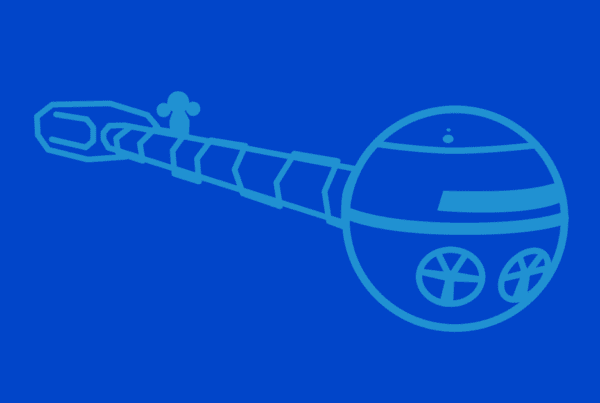
You have your hair washed, your outfit ironed and ready.
You arrive at the designated spot and take a few deep breaths to prepare yourself.
Finally, they arrive.
They give you a sort-of limp handshake (probably just the nerves), and settle down in the chair across the table. Instantly, they begin telling you all about themselves and their ”extensive” experience. You try to listen for any red flags or indications that they are not the right choice, taking mental notes as they speak. They’re going strong until 10 minutes in, when they take out their phone to shoot a text as soon as you ask “what’s your biggest weakness?”
And another one bites the dust.
No, this isn’t a date: it’s a job interview, and although it may sound bizarre, dating and hiring have much more in common than you’d think. Much like dating, hiring is a common practice that has been frustrating and befuddling people for decades. Just as with dating, you’re likely to meet a hundred duds in interviews before finding the “right” one, and clinging to them once you do, just hoping they won’t leave.
After centuries of failed dates, people have become, well, fed up with the “traditional” practices. Due to these feelings and, of course, modern technology, date-matching platforms like eHarmony were created to circumvent the difficulties of dating on your own. Much like dating, hiring managers have had it too; except platforms like eHarmony can’t help them.
But there are now platforms that can help.
This is how the deep talent matching platform was born: with the idea that you can match two people together for love, why can’t we do the same for hiring?
Quality vs cost
Both dating and hiring used to be a shot in the dark with risk involved- emotionally for dating and financially for hiring. Talent-matching platforms, much like the dating ones of today, have completely changed how hiring works in the modern world and for the most part, removed most initial risk from the process. However, not every platform is created equally.
Talent platforms are much like dating platforms in their variety: there are shallow platforms that have the user do most of the searching, vetting, and hiring. And then there are deep platforms like FlexTal, who take care of the process for the customer- shortening hiring time, and in turn, cutting costs.
Consider, for a second, the difference between Tinder and eHarmony. Tinder typically attracts a younger, more “junior” crowd looking to meet new people and have a casual, likely shorter relationship. The user does most of the work themselves by finding and reaching out to the person. eHarmony is a streamlined, “hands-free” version of Tinder. Using technology and data, the user is quickly matched with their perfect companion in just four steps, and voila; a match is made in just a few days (no bad dates required).
Bringing it back to hiring, the talent-matching platforms of today can be easily compared to the above dating apps and websites. Tinder is akin to Fiverr: your typical “casual,” find-a-freelancer site in which users searching for extra help need to find, vet, and hire the worker all on their own- and cross their fingers it works out.
On the flip side, much like eHarmony, FlexTal is a white-glove service that does the work for the user by matching customers with the right contractor and skills quickly, typically within just days.
Read: you can have your free time back and enjoy it, too.
You get what you pay for
When enlisting a platform to help you when searching for the right match, the effort and money you put into it – whether it be for love or Talent – is exactly what you get back. As with Tinder, or a platform such as Fiverr, users pay little-to-no fees for the process of finding the match itself. Users scroll for hours until finding a profile that stands out- then decide to give it a shot, likely experiencing a failed hire. Then they go back to the grind of scrolling…continuously. The labor and time costs, not to mention the mental toll, are enough to make the entire process worthless while also costing more than any hire could make up for.
When initially searching for a more in-depth talent matching platform, sticker shock can happen fairly easily to businesses looking to hire contractors- but the upfront costs can prevent any further, more damaging ones down the road. The hours of scrolling on low-cost platforms are immediately removed, and instead, a match is made without the user needing to do any of the hard work. That extra time can be spent on more important tasks, such as tackling their own to-do list or preparing for the incoming Talent.
Simply put, the time saved is worth the money spent.
Taking it to the next level
While we can discuss the similarities between dating apps and talent-matching platforms all day (and dissect bad dating-app stories), the most common similarity is that you get what you pay for. For businesses that are in need of elite contractors to help them grow and compete in a competitive market, the answer is obvious: a deep talent platform is necessary for success.
Let’s revisit that first date one more time: instead of a free, time-consuming app, you had first decided to better invest in your future and try eHarmony. The date went great- they were the perfect match just as the platform had promised, and you continue to date as you discover more and more how they perfectly fit what you were searching for all along.
With FlexTal, the same process happens (except you’re going home alone). When a business comes to us with their needs, our team works hard to ensure the perfect match is made to fulfill all the talent needs of the customer by finding, vetting, and hiring the contractor for them, without the customer needing to waste time reviewing hundreds of profiles or interviewing candidates. We take care of the process entirely, making sure we’re there every step of the way and creating the best match possible and taking away any first date, er, new hire jitters.
Alex Sixt is a creative professional specializing in content creation with a passion for all things marketing. Her professional experience includes developing marketing strategies, focusing on social media and content, for multiple industries. Outside of work, she loves spending time outdoors; all it takes is some time in the sunshine and a good hiking trail to make her happy.




